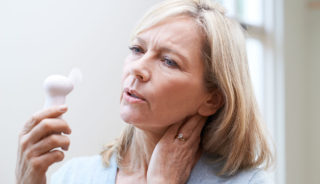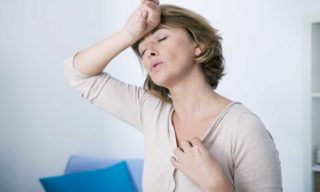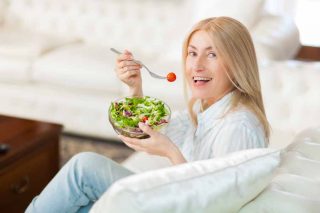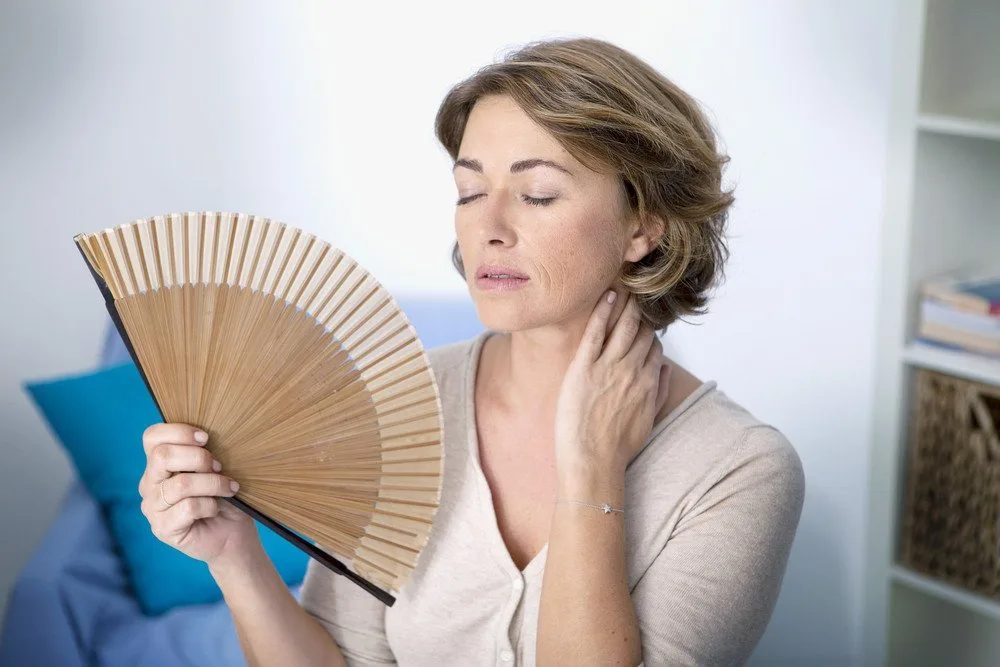For many women, menopause is a dreaded experience that they honestly wish they could skip. Now it’s not the effect on their biological clock that they dread, but rather the uncomfortable symptoms that come with the transition phase. Additionally, with us being in a pandemic, these symptoms may be harder to handle.
There are three stages of menopause – perimenopause, menopause, and postmenopause. Menopause often begins as early as one’s late 40s and the entire experience usually lasts for a few years. Most women will experience menopausal symptoms, most notably hot flashes and mood swings. Additionally, menopausal women also face a higher risk of obesity, heart disease, osteoporosis, and diabetes.
Common Menopause Symptoms
The hormonal changes that come with menopause can have quite an effect on your body. Some of the most common menopausal symptoms include:
Irregular periods
- Hot flashes

- Night sweats
- Mood swings
- Vaginal dryness
- Weight gain (Due to a slowed metabolism)
- Insomnia
- Thinning hair and dry skin
- Changes in urination patterns
- Loss of density as well as volume in breasts
- Decreased sex drive
Can Hormone Replacement Therapy help?
Hormone Replacement Therapy is often used to replace the estrogen that women lose during menopause. It is also used to help alleviate common menopausal symptoms.
Unfortunately, studies show that taking hormone replacement therapies can increase a woman’s risk for several diseases, including breast cancer and stroke.
Natural ways to manage symptoms
1. Phytoestrogens
Phytoestrogens are plant compounds that can mimic the effects of estrogen and, as a result, alleviate some menopausal symptoms. Research has found that phytoestrogens not only help to reduce the frequency of hot flashes, but also help to improve heart health in postmenopausal women (1).
Phytoestrogens can be found in soybeans, tofu, tempeh, flaxseeds, sesame seeds, as well as beans.
2. Breathing exercises
If you’re battling hot flashes, maybe you should just take a deep breath?
 According to a 2018 study, deep breathing, as well as walking exercises, helped to alleviate menopausal symptoms among menopausal women. If you happen to be struck with a hot flash while outside, worry not as there are plenty of breathing exercises you can do while wearing a mask.
According to a 2018 study, deep breathing, as well as walking exercises, helped to alleviate menopausal symptoms among menopausal women. If you happen to be struck with a hot flash while outside, worry not as there are plenty of breathing exercises you can do while wearing a mask.
3. Magnesium
Magnesium deficiency is quite common. That said, ensuring we get enough magnesium can help with menopausal symptoms, most notably hot flashes (2).
In addition to supplements, you can increase your intake of magnesium-rich foods such as spinach, avocados, dark chocolate, as well as legumes and seeds.
4. Exercise
Exercise is great for the soul, and it can be particularly beneficial for menopausal women.
In addition to preventing weight gain, exercising can also help to improve mental health and muscle mass as well as relieve stress overall quality of life in menopausal women (3).
Swimming, power walking, as well as jogging are great cardio exercises that menopausal women can do to stay fit.
5. Fruits and vegetables
Eating a diet high in fruits and vegetables is not only great for your health, but it can also help to reduce the risk of menopausal health problems.
Not only does it promote heart health, but one study with 3,236 women aged 50–59 found that diets high in fruit and vegetables may help to prevent bone loss, thus reducing the risk for osteoporosis.
6. Avoid refined carbs
Aside from increasing your risk for diabetes, which is already high in menopausal women, a diet rich in refined carbs as well as sugars can make you more tired as well as cranky. In fact, one study found a strong association between diets high in refined carbs and depression in postmenopausal women.
7. Use Essential Oils
A Korean study found that 60 menopausal women experienced a reduction in symptoms after an essential oil massage.
The best essential oils to help alleviate menopausal symptoms include clary sage oil, geranium oil, peppermint oil, and neroli oil.
To use one of these essential oils at home, be sure to mix it first with a carrier oil (jojoba oil or coconut oil works well) before massaging three oils into the back of your neck.
Want to know more?
Increased abdominal fat is one of the symptoms of menopause, with many menopausal women battling sudden belly fat. Thankfully, there are ways women can lose belly fat during their menopausal years.



![women [longevity live]](https://longevitylive.com/wp-content/uploads/2020/01/photo-of-women-walking-down-the-street-1116984-100x100.jpg)










